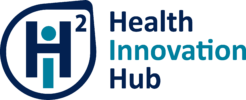With rapidly evolving international relationships and economic shifts, the present moment is underscored with a feeling of uncertainty. For early and aspiring health entrepreneurs, the onslaught of dizzying daily headlines and announcements may add additional concerns for research commercialization, how its execution will be impacted, and how they can work to mitigate potential risks.
The Canadian life sciences sector is robust and continues to grow with remarkable momentum, with CAD$82.1 billion in contributions to Canada’s GDP and CAD$2.2 billion in committed federal funding in 2023 alone.1 Toronto continues to be a flourishing hub, contributing CAD$3.6 billion to the country’s GDP in the same year (a record high) and more than 30,000 employed.2
At the same time, the field is in many ways intertwined with the neighbouring U.S sector and, notably, its capital. In the first quarter of this year alone, 80% of venture capital investments came from U.S. investors, totaling USD$800 million).3 With many Canadian health innovators/ventures reliant on capital, R&D support, lab space and other U.S.-based resources, building intentional, risk-conscious strategies is imperative.
Earlier in May, H2i hosted its latest Investment Workshop, convening a panel of industry experts to provide insight to health founders around how to embrace changing environments and create opportunities. The panel brought together key opinion leaders from investment (Evelyn Pau, Principal, Amplitude Ventures), law (Cheryl Reicin, Partner/International Chair, Life Sciences, Mintz), trade (Philip Bunsick, Life Sciences Trade Commissioner, Consulate General of Canada in Boston) and Canadian health innovation (Dr. Dante Morra, Founder & Chair, CAN Health).
Overarchingly, the general consensus throughout the workshop was that, while there is a lot to consider and respond to, there is also plenty to be optimistic about for healthcare founders. Further, the guest speakers emphasized that the optimal strategies for health founders in uncertain times are evergreen for early-stage entrepreneurs: focus on doing good work, developing thoughtful strategy, and finding the right team, investors and partners. What people raise on is team, traction and strategy/differentiation, and this will not change.
Pau shared that despite the presence of multi-risk scenarios on a global scale, investor sentiment is still optimistic. When advising her portfolio companies, she is stressing the balance of playing defense through cutting costs, demonstrating capital efficiency, and extending runways as long as possible, with offense – finding opportunities for development amidst challenges. While it may be tempting to pivot based on trendiness and the next ‘big shiny’ thing, what investors look for is consistency: the right team, with ability and conviction, and a strong scientific and technological foundation.
All four speakers emphasized the importance to build locally for a global marketplace. Reicin stressed the importance of having this global mindset from the beginning and seeking legal advice for how to structure your company for growth across global markets, to avoid significant legal or tax implications later.
While there is emerging risk tolerance for adopting new technologies, the experts agreed that it is imperative to thoroughly know your customer, and build with this in mind. To mitigate risk, one must understand who the end-user is, who the buyers and payers are, and what compliance looks like, especially in hospital environments where cybersecurity and other risks can become procurement challenges when a team is unprepared.
With regards to opportunities in health innovation, Morra pointed to major global disruption in healthcare, which he believes will open more commercial scaling opportunities for health innovators. While current trends see the deployment of capital in Canada in smaller amounts than the U.S. and at later stages of venture development, he sees this trend changing. With a significant portion of Canada’s GDP and tax dollars dedicated to healthcare, those working on innovative health technologies are in a great position to push their venture forward and make real impact. As the Canadian government invests in health innovation, it is important for founders to leverage the resulting resources, Reicin noted, through programs such as Intellectual Property Ontario (IPON).
Summarizing the sentiment of the workshop discussion and providing a message of optimism and focus for Canada’s incredibly talented healthcare innovators, Bunsick encouraged the ventures to pay notice to the following, “There is a lot of noise out there. Focus on your good, important work. Keep focused, identify what you can control and show up there.”
Perhaps most evident from this session is that uncertainty is to some extent the seed of innovation and entrepreneurship. There will always be noise and unexpected external forces. But there will also always be an abundance of support from those who seek to bring about positive change to our healthcare system at home, and globally. Founders who build strong teams, develop thoughtful strategies and focus on gaining a deep understanding of the landscape they are building in, and develop resilience and determination that can withstand uncertainty, will rise above it.
1 https://www.investcanada.ca/industries/life-sciences
2 https://www.toronto.ca/business-economy/industry-sector-support/life-sciences/
3 https://thelogic.co/news/canadian-startups-fundraising-american-venture-capital/

